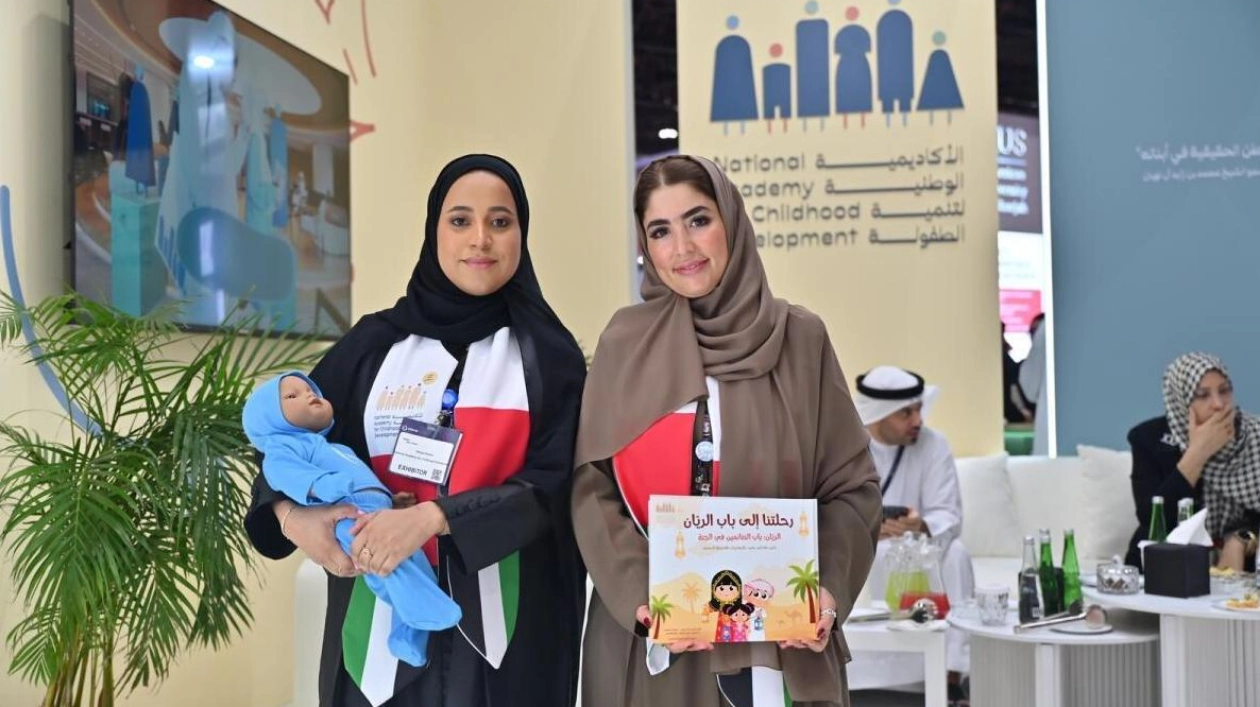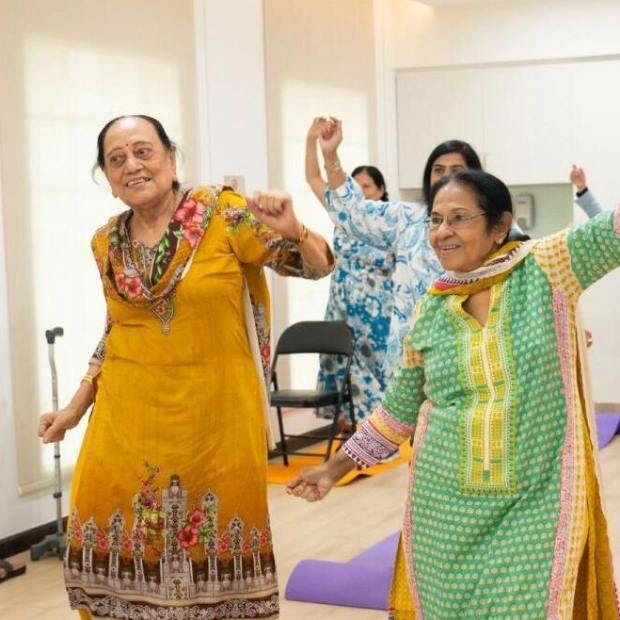KT Photo: Rahul Gajjar
Motivated by a desire to deepen her understanding of children's personalities, teaching strategies, and the sources of their distress, Hend Al Hammadi joined the National Academy for Childhood Development (NACD) over a year ago. Despite being a mother for five years, it was only after enrolling in the academy that she began to grasp child behavior. 'I was raising my children out of passion without any scientific knowledge of their development and behavior,' said the mother of two. 'I studied science in university, but that did not help me understand what children go through.' During her time at the academy, she 'learned that behind each behavior, there is a hidden factor that we need to decipher; we also learned to design games that cater to certain needs.'
The 31-year-old Emirati is one of 81 men and women graduating with a childhood development diploma from the academy. They have been training at various childcare facilities in Abu Dhabi, including the Zayed Higher Organization for People of Determination, along with public schools and women's shelter centers. The curriculum covers child psychology related to events such as parents' separation, the birth of siblings, and moving to a new school or city. The academy offers practical learning methods to accurately identify all aspects involved in a child's life – from infancy to adulthood.
Watch a video of how the academy helps students learn more about engaging and interacting with children:
The academy also provides sensor-equipped dummies to teach students how to handle a common childcare issue – soothing a crying infant. Maryam Mubarak, an Emirati, demonstrated how they train using accurate replicas that weigh as heavy as a real baby, cry like one, and are only soothed once you correctly resolve their issue of distress. The 27-year-old and her peers also authored and designed interactive books that teach young people Islamic practices and local traditions. 'It is a storybook that includes puzzles, 3D figures, and art activities,' she said, holding a book that teaches Muslim fasting and the traditions surrounding it.
KT Photo: Rahul Gajjar
Strengthening the Arabic language 'We stress a lot on strengthening the Arabic language as well as social skills, unfortunately, young people have become English oriented,' said Dr. Fadi Bani Mostafa, head of the academic department at NACD. Children are no longer in frequent contact with extended family members and older relatives and may not be accustomed to social etiquette, he added.
Upon graduation, students earn a vocational diploma that includes 1,350 credit hours and 18 months of theoretical and practical training. After completing the internship program, academy alumni are expected to land jobs at the entities where they are training. Furthermore, NCAD provides specialized training for doctors, teachers, social and domestic workers, as well as family members. 'Teachers benefit the most from our programs; although they studied education, that doesn't mean they naturally enjoy the right skills to deal with children or manage a classroom,' said Muna Al Blooshi, head of training and education at NCAD. Around 63 teachers have recently completed training.
'We're also teaching pediatricians how to recognize signs of abuse. Not every practitioner is experienced with child psychology and how to identify if a child has been bullied or abused.' To date, the academy has trained 30 pediatricians, nurses, and midwives.
Positive parenting Al Mothana Abu Deiab was working in humanitarian aid at Queen Rania's Royal Health Awareness Society when he came across NCAD's diploma program on LinkedIn. 'When I saw the program, I resigned from my job and signed up for it,' said the 32-year-old Jordanian. In his previous job, Abu Deiab organized several activities that teach positive parenting and interventions for behavioral change, 'but I did not have a scientific base or an academic degree to work with children.'
During the past 12 months, he learned that even simple old-school childhood toys have learning and healing purposes. 'For instance, the bubble-blower, where a child blows into a spatula to release bubbles; we used to think it was for fun, but it turns out that it is a relaxing mechanism. When the child inhales and exhales to blow the bubble, he is practicing a subconscious cooling intervention,' he explained.
Abu Deiab finished his NCAD theoretical training a year ago and is now an intern at ZHO; he plans to continue working there after graduation. NCAD's diploma program is available to Arabic-speaking high school graduates aged between 18 and 40.
Source link: https://www.khaleejtimes.com






